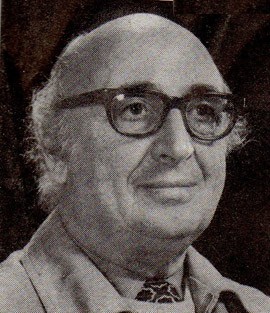John Saville (John Saville)

John Saville was born Orestes Stamatopoulos in 1916, in Gainsborough, Lincolnshire to Greek parents. He took the surname Saville from his mother’s second husband, and was brought up in Romford. He won a scholarship to Royal Liberty School in London and went on to study at the London School of Economics, where he joined the Communist Party of Great Britain (CPGB) and met his soon-to-be wife, Constance (née, Saunders). He was an active member of the CPGB until 1956 and also fought in the Second World War in India. Called up in 1940, he had the leftwing equivalent of a good war: “I had several large-scale quarrels with authority, although I was a good and efficient soldier”. Against the party line, he refused to take a commission, but advanced rapidly from anti-aircraft gunner to gunnery sergeant major instructor and regimental sergeant major, engaged in political work wherever he went – especially, from 1943 to 1946, in India. Whilst in India, John Saville met Nehru and leaders of the Muslim League and his friendship with Indian communist students in Britain, all from establishment families, opened most anti-imperial doors, reinforced his own firm, but no longer uncritical, convictions. (Unlike him, Constance had never accepted the Moscow-imposed party line of 1939-41, which followed the Molotov-Ribbentrop pact). The cold war, particularly frozen during the years of the Korean War and McCarthyism, made it easier to maintain them. He soon became a pillar of that remarkable assembly of talents, the Communist Party Historians’ Group (“intellectually my lifeline”), and also of the Hull Communist party and its associated organisations, while building a double expertise in 19th-century British economic history and labour history.
John Saville was deeply involved in the crisis of the British Communist Party in 1956, following the Soviet invasion of Hungary. Khrushchev’s denunciation of Stalin in 1956, or, more exactly, the failure of the British CP leadership to recognise its significance, transformed the Historians’ Group from loyalists into vocal critics. Saville’s was the first voice raised at its meetings. Breaking his affiliation with the cluster of British Marxist historians known as the Communist Party Historians Group, Saville emerged as one of the founders of the New Reasoner, in partnership with another Yorkshire Communist historian, E.P. Thompson, part of a group of dissident Marxists who condemned the Soviet intervention in Hungary in 1956. John Saville became Professor of Economic History at Hull University in 1973, where he had taught since 1947. He was associated with the Socialist Register (editor with Ralph Miliband) and the multi-volume Dictionary of Labour Biography; from 1972 onwards he was one of the editors of the ten-volume Dictionary. His acquaintances and co-thinkers included John Griffith, Stuart Hall, Philip Larkin, Doris Lessing, Ralph Miliband, Sir John Pratt, Raphael Samuel and E.P. Thompson. Harry Newton, a left-wing student, had passed himself off as a family friend. His true identity, as a MI5agent planted at his home in Hull, was uncovered after his death. His beloved wife Constance died in 2007. He was survived by their three sons, a daughter, and two grand daughters.
Born
- April, 02, 1916
- United Kingdom
- Gainsborough, Lincolnshire
Died
- January, 01, 1970
- United Kingdom

